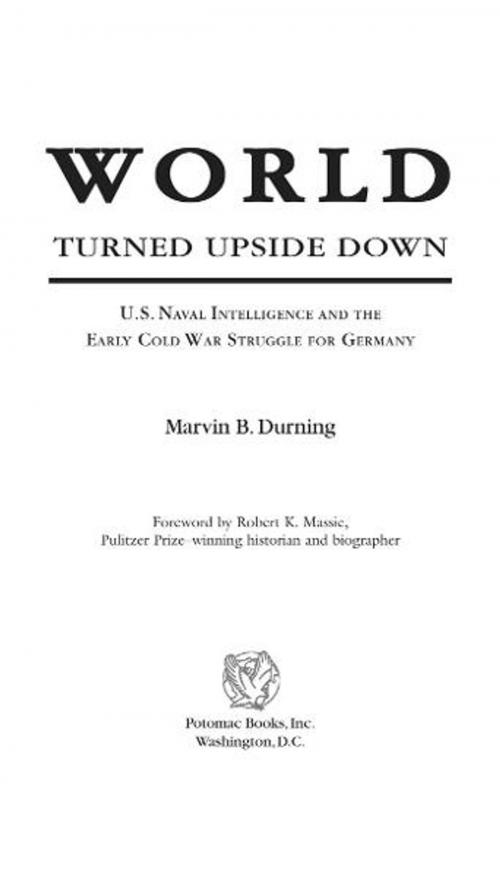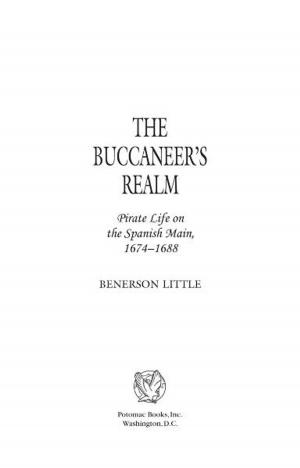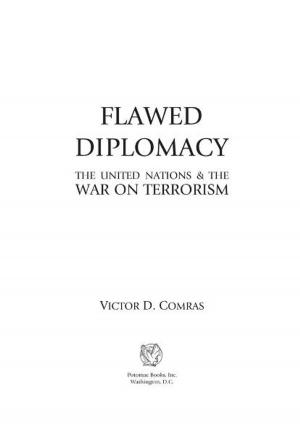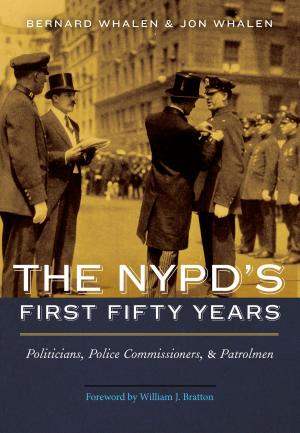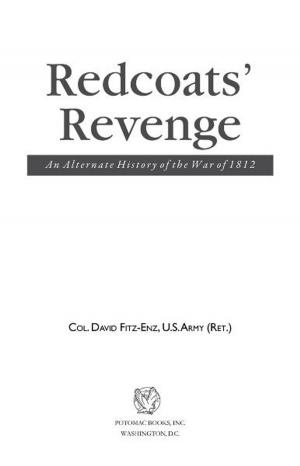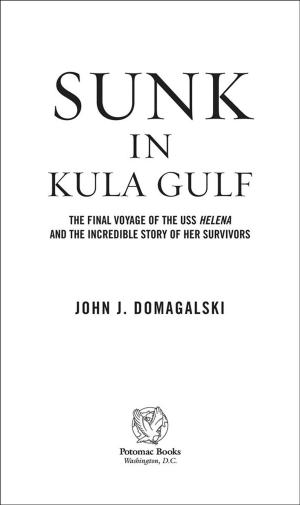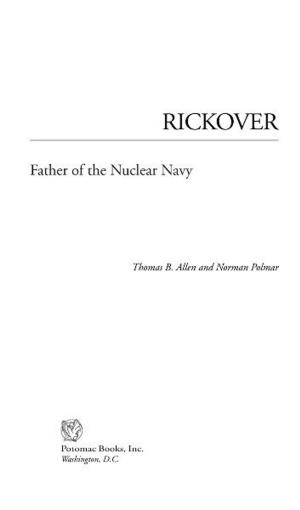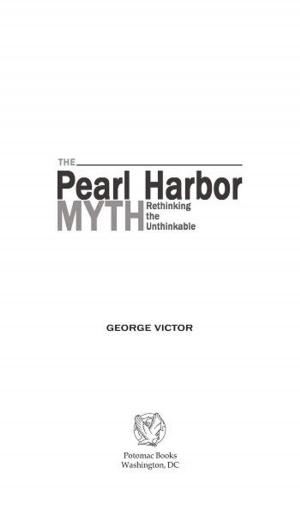World Turned Upside Down: U.S. Naval Intelligence and the Early Cold War Struggle for Germany
Nonfiction, History, Americas, United States, 20th Century, Social & Cultural Studies, Political Science| Author: | Marvin B. Durning | ISBN: | 9781612343730 |
| Publisher: | Potomac Books Inc. | Publication: | December 31, 2007 |
| Imprint: | Language: | English |
| Author: | Marvin B. Durning |
| ISBN: | 9781612343730 |
| Publisher: | Potomac Books Inc. |
| Publication: | December 31, 2007 |
| Imprint: | |
| Language: | English |
In 1955, after assignments at the U.S. Office of Naval Intelligence (ONI) and on board a destroyer, Marvin Durning arrived at ONI's office in Munich, Germany. During this year, he participated in the final stages of transforming Germany from a defeated enemy into a respected democracy, reestablishing its sovereignty, and shepherding its membership in NATO, which also involved rearming America's erstwhile foe. At that time, Munich, like Berlin, was a nerve center for the Cold War. It was crowded with U.S. troops and German and Slav refugees. Radio Free Europe called it home. The city was, Durning writes, “a jungle of competing secret intelligence organizations: British, French, American, Russian, West and East German, Czech, Polish, and others.” Beneath the calm surface of everyday life in Munich roamed agents and double agents who witnessed defections, kidnappings, interrogations that ended in death, and assassinations by bomb explosions and by poison dart.
World Turned Upside Down is Durning's account of such activities. Durning served as the de facto executive officer of a small office of German intelligence specialists tasked with routine navy issues. But much more was underway. Known only to his commander, himself, and the yeoman who typed the reports, former admirals of the defunct German Kriegsmarine attended secret meetings at his commander's house in the suburbs of Munich, where they worked to plan and create a future West German Navy. In addition, Durning served as a liaison officer to the Gehlen Organization, the supersecret German intelligence and espionage organization, and he recounts their activities here.
World Turned Upside Down is Durning's account of such activities. Durning served as the de facto executive officer of a small office of German intelligence specialists tasked with routine navy issues. But much more was underway. Known only to his commander, himself, and the yeoman who typed the reports, former admirals of the defunct German Kriegsmarine attended secret meetings at his commander's house in the suburbs of Munich, where they worked to plan and create a future West German Navy. In addition, Durning served as a liaison officer to the Gehlen Organization, the supersecret German intelligence and espionage organization, and he recounts their activities here.
In 1955, after assignments at the U.S. Office of Naval Intelligence (ONI) and on board a destroyer, Marvin Durning arrived at ONI's office in Munich, Germany. During this year, he participated in the final stages of transforming Germany from a defeated enemy into a respected democracy, reestablishing its sovereignty, and shepherding its membership in NATO, which also involved rearming America's erstwhile foe. At that time, Munich, like Berlin, was a nerve center for the Cold War. It was crowded with U.S. troops and German and Slav refugees. Radio Free Europe called it home. The city was, Durning writes, “a jungle of competing secret intelligence organizations: British, French, American, Russian, West and East German, Czech, Polish, and others.” Beneath the calm surface of everyday life in Munich roamed agents and double agents who witnessed defections, kidnappings, interrogations that ended in death, and assassinations by bomb explosions and by poison dart.
World Turned Upside Down is Durning's account of such activities. Durning served as the de facto executive officer of a small office of German intelligence specialists tasked with routine navy issues. But much more was underway. Known only to his commander, himself, and the yeoman who typed the reports, former admirals of the defunct German Kriegsmarine attended secret meetings at his commander's house in the suburbs of Munich, where they worked to plan and create a future West German Navy. In addition, Durning served as a liaison officer to the Gehlen Organization, the supersecret German intelligence and espionage organization, and he recounts their activities here.
World Turned Upside Down is Durning's account of such activities. Durning served as the de facto executive officer of a small office of German intelligence specialists tasked with routine navy issues. But much more was underway. Known only to his commander, himself, and the yeoman who typed the reports, former admirals of the defunct German Kriegsmarine attended secret meetings at his commander's house in the suburbs of Munich, where they worked to plan and create a future West German Navy. In addition, Durning served as a liaison officer to the Gehlen Organization, the supersecret German intelligence and espionage organization, and he recounts their activities here.
